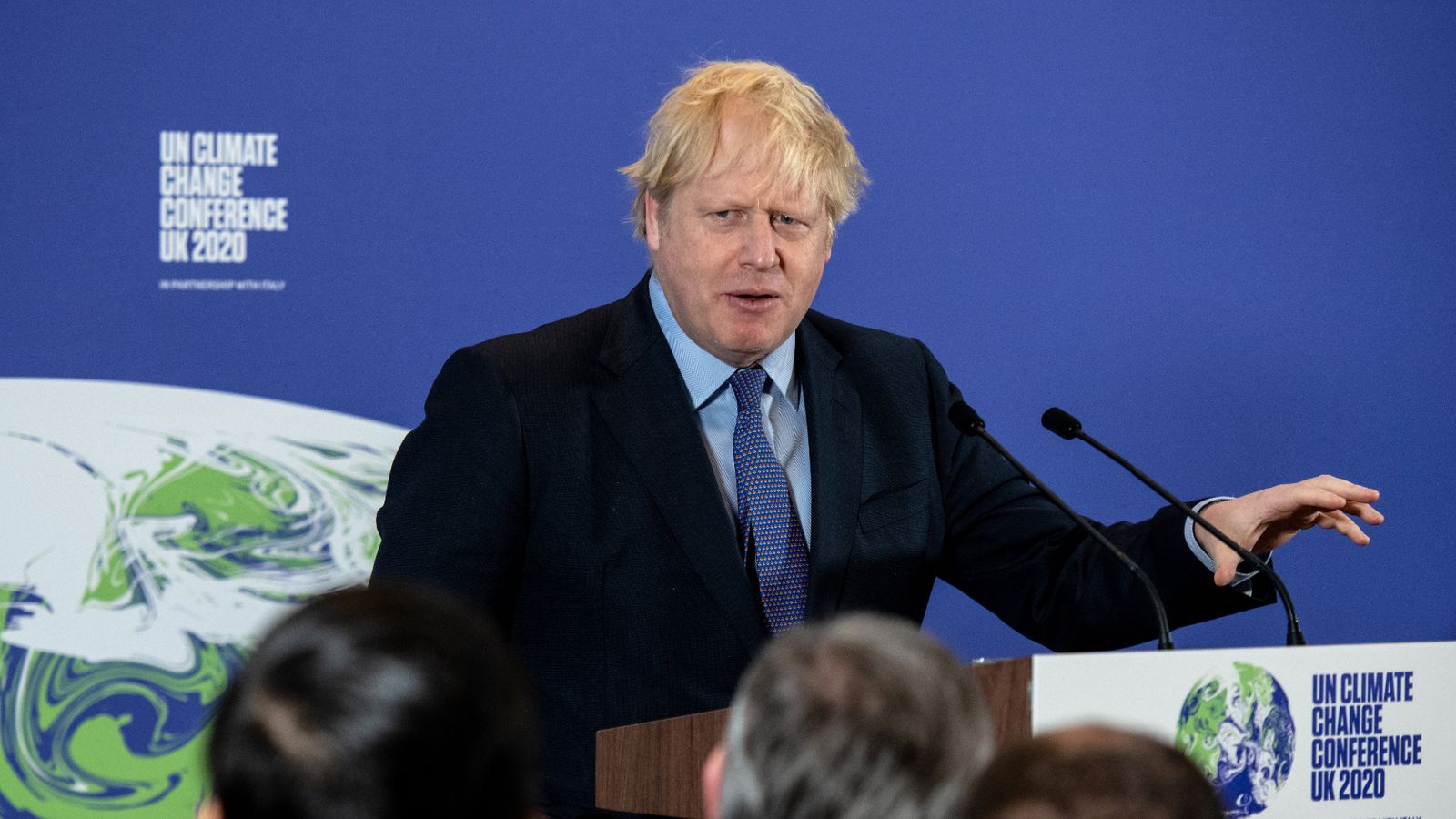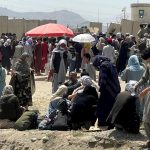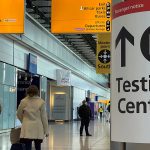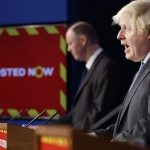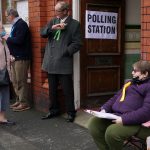The COP26 climate change summit may have to be postponed or radically changed because of the coronavirus pandemic, according to government sources.
Prime Minister Boris Johnson is battling to ensure the flagship November summit is held face-to-face by ensuring participants are vaccinated and subject to a robust testing regime.
However, two government sources suggested the Glasgow summit might still have to be delayed for a second time amid signs the pandemic is worsening in parts of the world.
It was postponed by a year from last November because of COVID-19.
The decision on the future of the summit would be made in conjunction with the United Nations as well as the Scottish government, rather than being a decision for Downing Street alone.
Last year, a decision about delaying the summit was taken in May, meaning leaders are likely to have to decide the shape and future of the summit within weeks.
One government source said: “There are too many uncertainties. It will depend on what public health rules are brought in between now and then, and what happens with vaccinations of delegates.”
Alok Sharma, the COP26 president, has told MPs the summit needs to be a physical event where participants sit around the table, although there will also be online attendees.
It is not yet clear who will be able to come in person and who must attend virtually.
The government recently decided to abandon plans to hold the G7 finance ministers meeting in person in Cornwall in late spring.
The event, to be hosted by Chancellor Rishi Sunak, will now be held virtually.
Please use Chrome browser for a more accessible video player
This has triggered alarm bells in Whitehall because the finance ministers meeting involved a fraction of the number of people involved in COP26, yet has still been judged unviable.
The main G7 meeting of global leaders in June, hosted by Mr Johnson and involving US President Joe Biden and German Chancellor Angela Merkel, is still taking place in Cornwall.
The last two COP summits have had more than 20,000 attendees, with heads of state, ministers, sherpas and officials, as well as security figures, all flying in.
Ministers do not yet know what social distancing or travel rules will be in place, and whether it would be feasible to vaccinate key attendees.
The Scottish government, likely to be run by SNP’s Nicola Sturgeon after the May elections, will determine public health rules in force in Glasgow.
Plans to dramatically scale back attendees – forcing many civil society groups to participate online – are likely to cause controversy.
There is concern that this will mean key voices from small states vulnerable to climate change get marginalised.
However, one source in the climate change movement said the event could benefit from being moved to next spring rather than being held almost entirely online.
This would mean more people were vaccinated and there would not be the winter pressures present in November.
There are also concerns that the preparatory work for COP26 is behind schedule and the extra months could ensure a more successful outcome.
Please use Chrome browser for a more accessible video player
The MP chairing the House of Commons’ business select committee warned that scaling back the conference could marginalise the voices that need to be heard the loudest.
Labour’s Darren Jones told Sky News that the government needs to spell out how in-person negotiations would happen.
“One important aspect of all COPs is that every country has the same level of access around the table – whether you are the president of the United States or the president of Madagascar – thrashing out the global agreement,” he said.
“Some of the smaller countries, some of the more vulnerable countries, rely on NGOs (non-governmental organisations) to amplify their voice.
“So if we end up with just national delegations and not other interested stakeholders there is a risk to securing the right kind of agreement.”
Mr Jones warned the prime minister not to prioritise presenting an image of post-Brexit UK global leadership over the priority of getting a deal on climate change.
“The primary and, to be honest, the only target for COP26 is to agree on a national and international approach to decarbonisation,” he added.
“I can understand and empathise why the prime minister would want to have an all bells and whistles British leadership conference but that’s a secondary priority to the COP process.
“Climate change isn’t about our country’s ego, it’s about saving the planet.”
Subscribe to the Daily podcast on Apple Podcasts, Google Podcasts, Spotify, Spreaker
One diplomat revealed concerns that Mr Johnson’s aims for the summit – to put post-Brexit Britain on the diplomatic map – suggested the prime minister’s focus and goals for the summit were not solely focused on promoting a climate change agreement.
They made clear a delayed COP summit was preferable to a bad one.
“There are dangers from trying to slim it down too much,” they said.
“Even government delegations need lots of people. It’s not clear how it will work with much fewer people.”
Green Party co-leader Jonathan Bartley said the summit could not be delayed a second time.
He told Sky News: “COP is absolutely vital – it’s about people’s security, about people’s wellbeing, this is a climate emergency. It should be treated as such.
“COP meeting is an emergency situation. It’s about how we look at not overshooting that 1.5 degree increase which looks like we’re so in danger of doing. That is potentially disastrous for the entire planet.
“If there is any way of making COP go ahead we should be looking at it. It’s already been put back once. We can’t afford to dither and delay any more.”
Downing Street said that Mr Johnson was determined to hold the summit in person.
A source said there were always uncertainties but they had seen nothing to suggest it could not go ahead.
